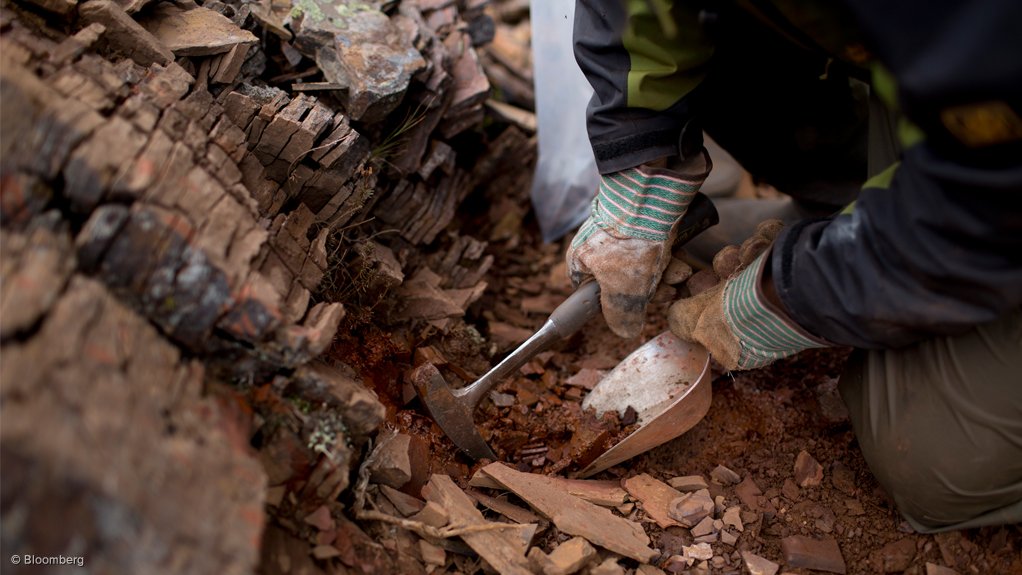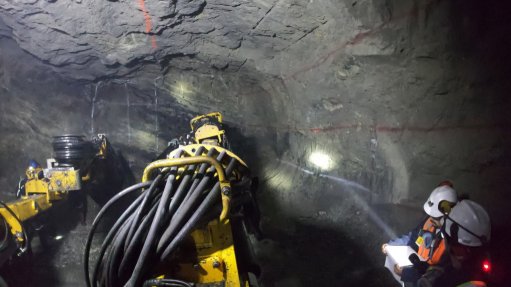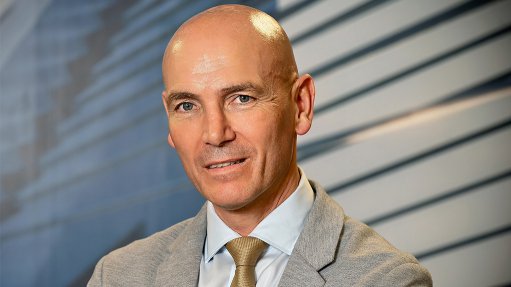Juniors struggle in sea of red tape, fees and demographic losses – Benjamin Cox
TORONTO (miningweekly.com) – As the industry prepares for the 2015 Prospectors and Developers Association of Canada’s conference, many have written off the past year as another annus horribilis – a horrible year filled with more impairments, fire sales, debt headaches and muted prices.
The junior sector has struggled most, with many falling by the wayside or clinging on by their fingernails. But some have bucked the trend and have advanced their projects with inventiveness and flexibility.
The situation is unlikely to change any time soon, Oreninc MD Benjamin Cox told an audience at the Canadian Institute of Mining’s Management and Economic Society, in Toronto, on Wednesday. “So are you thinking about how you’ll survive over the next two years?” he asked. “Because I can tell you it’s not going to get better for a little while yet.”
TERMS AND CONDITIONS APPLY
Critical for the juniors had been the ongoing dearth of finance and liquidity. The major cause of this was the preference among investors for oil and gas over mining when choosing the extractive industries.
Of the money that was moving towards mining, most was being fed into the seniors’ corporate restructuring, leaving the juniors waiting at the back of the line. “The money we have left is going to the big boys,” Cox stated, adding that they were the first ones to obtain finance on a recovery.
Compounding matters still further, the expectations placed on juniors had fundamentally changed over the past decade or so. Before 2000, juniors conducted exploration and determined the viability of a project through drill work. Proceeds would be returned to the company if the project was sold and the junior would move on to its next objective.
Nonviable projects would either be terminated or placed on hold until their economics became more favourable. The resource supercycle’s peak years from 2004 to 2011 changed the dynamic by making many unviable projects suddenly economic. “These were the years in which everything was doable; it was a period when things were really bubbly,” Cox commented.
Concurrent with this, the seniors had downloaded tasks they traditionally performed onto junior shoulders, particularly in relation to environmental permitting and the social licence to operate. Most juniors were able to carry this extra weight in the boom years, but it had become an impossible burden for many in the downturn.
Juniors could also be their worst enemies, particularly those that undertook expensive economic studies they could ill afford and would have little acceptance among the seniors anyway. “I talk to around ten majors a year and, in 15 years, I’ve never had one approach me and say: ‘Wow, this junior has just published a study we really like.’”
In addition, too many juniors continue renting salubrious offices that were neither affordable nor required. “Go to a gravel pit and see how they easily operate their head office out of a trailer and save money because of this,” Cox highlighted. “You don’t need offices that resemble your law firm’s board rooms.”
OUT TO PASTURE
The industry as a whole was facing the detonation of a demographic time bomb; baby boomers were retiring in greater numbers, with many now shifting their savings out of riskier fields like mining into safer, blue-chip options.
In addition, the talent pool among the baby boomer generation was being lost because of retirement, including 600 industry CEOs that would have to be replaced over the next few years, Cox advised.
For the retail investors that remained, the expectations and pressures placed on them by industry and government continued to grow. “In the past, investors bought into stocks cheaply and, although they lost a lot of times, the price of a ticket was cheap. And when they won, they won big,” he added.
Today, the investor was asked to pay a higher “ticket” cost, hold a position for several years and, if eventually successful, receive a lower reward once all the dilutive effects had been tallied. Conversely, any losses experienced by an investor now cut deeper, lengthening the amount of time for their return to the market – the interval between fear and greed.
Others had simply walked away, likely never to return.
Meanwhile, those who believed private equity could act as a universal panacea were sorely misguided.
“Private equity doesn’t know what to do with this industry because private equity traditionally leverages a thing that returns a cash flow. And we’re not in the business of cash flow – we’re in the business of discovery,” Cox said.
Finally, the sea of red tape kept rising, forcing companies to spend greater amounts of time, money and effort to wade through unavoidable paperwork, incurring a cost that would have been much better spent on exploration.
The fees associated with having custom-prepared documents drawn up remained exorbitant for most juniors and Cox voiced hopes that a law firm might electronically standardise many of the processes involved and do so for a reasonable, flat-rate fee.
“At some point, someone is going to completely change the way this is done; I really want to see that happen."
GET MATCH FIT
The recovery would eventually arrive, reinvigorating all sections of the industry. It might stem from one or two commodities suddenly surging ahead and bringing the market along in their wake, Cox said, believing that zinc would be "hot" for the next ten years, and copper too.
However, he cautioned that the market will no longer resemble what had gone before, reminding the audience of the demographic problem and the slowing of Chinese growth and of the consequence for commodities uptake.
In the meantime, companies needed to continue improving efficiencies wherever possible and remain watchful for volatility threats – such as currency fluctuations – and the dangers this could present.
“When the recovery comes it will help everyone. But those who’ll feel the benefits first are the ones who have already fixed, changed and made things work during the downturn,” Cox advised. “It’s like a ship – get those barnacles off and you’ll go a lot faster.”
Comments
Press Office
Announcements
What's On
Subscribe to improve your user experience...
Option 1 (equivalent of R125 a month):
Receive a weekly copy of Creamer Media's Engineering News & Mining Weekly magazine
(print copy for those in South Africa and e-magazine for those outside of South Africa)
Receive daily email newsletters
Access to full search results
Access archive of magazine back copies
Access to Projects in Progress
Access to ONE Research Report of your choice in PDF format
Option 2 (equivalent of R375 a month):
All benefits from Option 1
PLUS
Access to Creamer Media's Research Channel Africa for ALL Research Reports, in PDF format, on various industrial and mining sectors
including Electricity; Water; Energy Transition; Hydrogen; Roads, Rail and Ports; Coal; Gold; Platinum; Battery Metals; etc.
Already a subscriber?
Forgotten your password?
Receive weekly copy of Creamer Media's Engineering News & Mining Weekly magazine (print copy for those in South Africa and e-magazine for those outside of South Africa)
➕
Recieve daily email newsletters
➕
Access to full search results
➕
Access archive of magazine back copies
➕
Access to Projects in Progress
➕
Access to ONE Research Report of your choice in PDF format
RESEARCH CHANNEL AFRICA
R4500 (equivalent of R375 a month)
SUBSCRIBEAll benefits from Option 1
➕
Access to Creamer Media's Research Channel Africa for ALL Research Reports on various industrial and mining sectors, in PDF format, including on:
Electricity
➕
Water
➕
Energy Transition
➕
Hydrogen
➕
Roads, Rail and Ports
➕
Coal
➕
Gold
➕
Platinum
➕
Battery Metals
➕
etc.
Receive all benefits from Option 1 or Option 2 delivered to numerous people at your company
➕
Multiple User names and Passwords for simultaneous log-ins
➕
Intranet integration access to all in your organisation





















